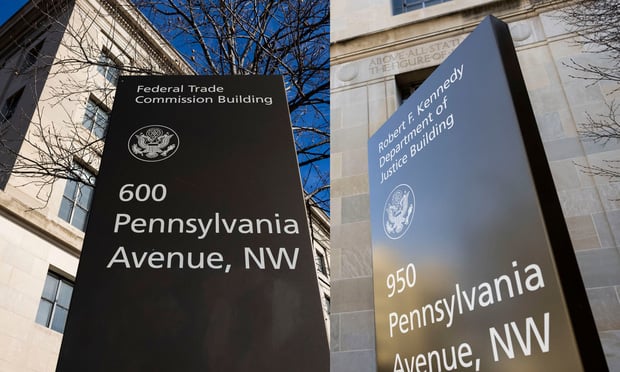 Critics say thelegislation goes too far in limiting drugmakers’ discretion to setprices and doesn’t do enough to help consumers. (Photo:Shutterstock)
Critics say thelegislation goes too far in limiting drugmakers’ discretion to setprices and doesn’t do enough to help consumers. (Photo:Shutterstock)
A bipartisan Senate bill would yield $100 billion in savings onprescription-drug spending over a decade, twoof its sponsors said, in part by penalizing pharmaceuticalcompanies for raising prices faster than the rate of inflation.
|The legislation, which has the backing of the White House,contains several proposals designed to reduce government outlays inMedicare and Medicaid. It also seeks to limit what patients whohave Medicare drug plans would have to spend out of their ownpockets on prescriptions.
|The measure, released by the Republican and Democratic leadersof the Senate Finance Committee, Chuck Grassley of Iowa and RonWyden of Oregon, is expected to be taken up by that panel laterthis week.
|Related: ‘Cartel’ of 16 companies and 300 generic drugsaccused of price fixing
|“We are engaging with coalitions to help build support,” WhiteHouse spokesman Judd Deere said in a statement. “We will work withSenators to ensure this proposal moves forward and advances thepresident’s priority of lowering drug prices even further andincreasing transparency in health care for the benefit of allAmericans.”
|Still, some lawmakers and business groups are already lining upon the other side, saying the legislation goes too far in limitingdrugmakers’ discretion to set prices and doesn’t do enough to helpconsumers.
|Getting drug prices under control has been a top priority of theTrump administration and lawmakers of both parties, but action sofar has been limited. Last week, the White House pulled back aproposal that would have curbed rebates paid to drug-planmiddlemen, and earlier this week Democrats in the House said theywould put off debate on a drug-price bill until September.
|The Senate bill would force drugmakers to give rebates to thefederal government if they raised the list prices of drugs at afaster rate than other prices in the economy. To keep drugmakersfrom jacking up prices ahead of the bill’s passage, the inflationcap would be anchored to a medicine’s price on July 1 of thisyear.
|Nothing in the measure curbs the price pharmaceutical companiesset for new drugs, as lawmakers seek to protect innovation andpreserve patient access to new therapies. Drugmakers would stillhave the ability to set high nominal list prices in order to offsetany concerns that a low inflation rate would erode profits.
|Breakthrough medicines are coming with increasingly higherstarting prices. Zolgensma, a recently approved Novartis AGtreatment for a condition called spinal muscular atrophy, will costas much as $2 million. The coming years are expected to see moreexpensive therapies based on genetic science and other newtechnology reach the marketplace.
|Trump push
Top Trump administration officials, including Health and HumanServices Secretary Alex Azar and Joe Grogan, director of the WhiteHouse Domestic Policy Council, met recently with Senate Republicansto push them to embrace some ideas from Democrats, such as theinflation rebate developed by Wyden, that often are counter to GOPorthodoxy.
|However, some Senate Republicans balked at the new bill onTuesday.
|“Basically we’re talking about price controls and once you openthat door, other things will happen,” said Pat Roberts ofKansas.
|What this comes down to is “will Republican Senators take onpharma,” Wyden said.
|Other parts of the bill would make changes to how Medicaid, thefederal-state program for low-income people, pays for medications.The bill’s backers said it would increase transparency in thepharmaceutical supply chain, which depends on a complex web ofmiddlemen and distributors.
|The Department of Health and Human Services would be required tomake public data it receives annually from middlemen, known aspharmacy-benefit managers, including the aggregate amount ofrebates they negotiate from drugmakers on the list price of atherapy in exchange for better access to patients. The rebates havebeen criticized for leaving those with high-deductible coveragewith large out-of-pocket costs.
|Shares of drugmakers and pharmacy-benefit managers showed littlereaction to the measure. The Nasdaq Biotechnology Index was up 0.2%at 3:46 p.m. in New York.
|The Campaign for Sustainable Rx Pricing, an advocacy group thatsupports market-based solutions to drug-pricing issues, said theSenate proposal is a “good first step.” The organization representsa coalition of health-care providers, hospitals, pharmacy-benefitmanagers and insurers.
|Aggressive lobbying
Lawmakers have worked for months to come up with a viable planthat can appease Republicans, Democrats and the Trump White House.All the same, the measure is likely to face many obstacles,including aggressive lobbying by a pharmaceutical industry that hasso far fended off many recent efforts to change its businesspractices.
|The lobbying group Pharmaceutical Research and Manufacturers ofAmerica, which represents some of the largest drugmakers, said itopposed the bill. The group’s chief executive, Stephen Ubl, said it“would siphon more than $150 billion from researching anddeveloping new medicines.”
|The industry has long claimed any attempt to curb prices wouldhurt its ability to fund research and stymie U.S. patients’ accessto new treatments.
|The U.S. Chamber of Commerce also opposed what it said wouldamount to using “the power of the government to impose pricecontrols.”
|The committee will consider amendments to the legislationThursday and potentially pass it on to the entire Senate for a voteif enough panel members are on board. The Senate is expected tobreak for August recess at the end of next week.
|The House is expected to weigh in on drug prices when lawmakersreturn from recess in September. Democrats who are in control therewill unveil their own legislation then, the chief health-careadviser to House Speaker Nancy Pelosi said on Monday. That proposalis likely to address drugs that don’t face much competition, thePelosi aide, Wendell Primus, said at an event at the BrookingsInstitution.
|–With assistance from Alexander Ruoff, Riley Griffin andJosh Wingrove.
|Read more:
- Fact check: Has President Trump brought down drugprices?
- White House falters on drug price reforms; time forCongress to step in?
- 5 things senators are hearing about drugprices
Copyright 2019 Bloomberg. All rightsreserved. This material may not be published, broadcast, rewritten,or redistributed.
Complete your profile to continue reading and get FREE access to BenefitsPRO, part of your ALM digital membership.
Your access to unlimited BenefitsPRO content isn’t changing.
Once you are an ALM digital member, you’ll receive:
- Critical BenefitsPRO information including cutting edge post-reform success strategies, access to educational webcasts and videos, resources from industry leaders, and informative Newsletters.
- Exclusive discounts on ALM, BenefitsPRO magazine and BenefitsPRO.com events
- Access to other award-winning ALM websites including ThinkAdvisor.com and Law.com
Already have an account? Sign In
© 2024 ALM Global, LLC, All Rights Reserved. Request academic re-use from www.copyright.com. All other uses, submit a request to [email protected]. For more information visit Asset & Logo Licensing.








